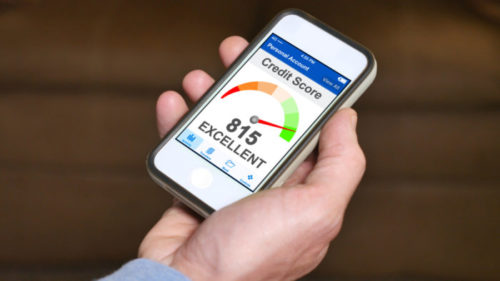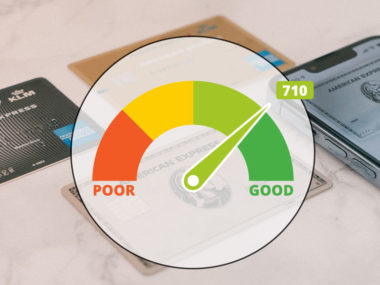There are several hacks that you will find useful when it comes to building and maintaining a good credit score. Most hacks are things you should be doing regularly, such as paying your bills on time and choosing the right lenders.
Others should be performed on a more case-by-case basis. Either way, improving your credit score takes motivation and commitment. Think of these hacks not as quick fixes, but rather as financial advice to follow throughout your lifespan.
Before jumping into these hacks, consider each of the different pieces of data that make up your credit report:
- 35% payment history;
- 30% amounts owed;
- 15% length of credit history;
- 10% new credit;
- 10% credit mix.
Table of Contents
Pay Your Bills on Time
The first and most simple credit score hack: pay your bills on time. Your payment history makes up 35% of your credit score.
Always prioritize paying your bills on time.
Optimize Your Credit-Utilization Rate
Keeping a low credit-utilization rate is ideal for boosting your credit score. Also referred to as a credit utilization ratio, this is the percentage of the total credit you’re using. On your credit report, it is reflected as “amounts owed.”
The general rule of thumb is to keep your credit utilization rate below 30%.
Mix Up Your Credit Lines
Your mix of credit lines makes up 10% of your credit score. The different types of credit that your score may be composed of include: credit cards, student loans, car loans, and mortgages. Mixing up your credit lines is one score booster you shouldn’t pass up. Just like you need a diversified investment portfolio, you need variety when it comes to credit as well.
Dispute Errors and Negative Items on Your Credit Report
Any information on your credit report that you don’t believe should be there can be disputed. To begin the dispute, contact the credit bureau that is reporting an erroneous or negative item. Make sure to check each of your three credit reports — Experian, TransUnion, and Equifax — for accuracy.
The same goes for debt that has gone to a collection agency. Simply write the collector a debt validation letter. While there is no guarantee this will work, it does not hurt to try.
If a creditor or collector has inaccurately reported information, you have a right to dispute it under the Fair Credit Reporting Act.
Ask Your Creditor for a Goodwill Deletion
If a negative item is truly yours, the next best option is to ask your creditor for a goodwill deletion. You can also do this by sending a letter. Keep in mind that removing collections from your credit report may be much trickier than removing other negative items — such as late payments that haven’t been sent to collections.
Collections stay on your reports for up to seven years. People who are looking to take out a mortgage or car loan may need that collection account gone sooner.
Become an Authorized User on Someone Else’s Account
Becoming an authorized user on someone else’s account is a great option for improving your credit score — if you know someone with a solid credit score and history. As an authorized user, you’ll inherit any of the positives associated with their account, as well as any of the negatives. You’ll also receive access to the primary holder’s account, as well as your own credit card — though you are not responsible for any of the debt taken on.
The tricky part of course is finding someone willing to add you to their account. While primary account holders by no means have to give you access to their credit cards, it may still be a tough sell if you have a poor credit history.
When considering this option, just remember that becoming an authorized user on someone else’s account is not a substitute for building up your own credit history. Think of it more as a boost for establishing or improving your credit history.
Choose the Right Lenders
When you’re looking to take out a loan, make sure to only work with reputable lenders. Avoid lenders that offer short-term, high-interest loans. Know your rights as a borrower and shop around for the best lender before biting off more than you can chew.
While this hack may not apply if you’ve already taken out a loan, it is a good rule of thumb for any borrowing you may do in the future.
Seek Credit Wisely
Every time you open a new credit card or take out a loan, the lender will pull your credit history, causing your score to go down. While opening new accounts does make up 10% of your credit report, you should only do so wisely.
Pay Off Your Credit Cards With a Personal Loan
Consolidating your debt is a good option for people whose debt has spiraled out of control. This can be done by taking out a personal loan to pay off all your debts. Ideally, you are then left with only one debt to worry about paying back.
When deciding whether you should consolidate your debt with a personal loan, consider what rate and terms you’ll qualify for. Eligible parties may qualify for an interest rate that is lower than what their credit card debt currently carries.
Hire a Professional
You always have two options when it comes to improving your credit score. Option one is to do it yourself. Option two is to hire a professional.
The best credit repair companies will help you dispute and remove negative items from your credit report. While it comes at a cost, these companies often work faster and more efficiently than you would on your own.
Image Source: https://depositphotos.com/





